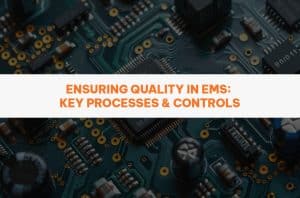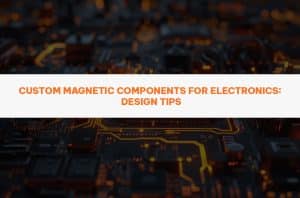The electric vehicle (EV) industry is undergoing a transformative period, driven by technological advancements that are reshaping how these vehicles are designed, manufactured, and operated. Among the most impactful technologies are Artificial Intelligence (AI) and the Internet of Things (IoT). These innovations are not only enhancing the capabilities of electric vehicles but also revolutionizing the manufacturing processes, particularly in EMS manufacturing and SMT assembly. This blog explores the critical role of AI and IoT in the electric vehicle industry and how they are paving the way for the future of transportation.
AI in Electric Vehicles
AI has become an integral part of electric vehicles, contributing to the optimization of performance, safety, and efficiency. One of the most notable applications of AI in EVs is in autonomous driving. AI algorithms process data from sensors, cameras, and LiDAR systems to make real-time decisions, allowing vehicles to navigate complex environments without human intervention.
Beyond autonomous driving, AI is also employed in energy management systems within EVs. These systems use AI to predict driving patterns and optimize battery usage, which enhances battery life and overall vehicle efficiency. This makes electric vehicles more practical and appealing to consumers, as they offer longer driving ranges and require less frequent charging.
In the context of manufacturing, AI plays a crucial role in SMT assembly. SMT assembly is the process of mounting electronic components onto printed circuit boards (PCBs) with high precision. AI-driven systems can detect defects, optimize component placement, and ensure the entire assembly process is efficient and error-free. This level of precision is vital in electric vehicle manufacturing, where even minor errors can lead to significant performance issues.
IoT in Electric Vehicles
IoT is another technology that is fundamentally transforming the electric vehicle industry. IoT enables electric vehicles to be part of a connected ecosystem, allowing real-time data exchange between the vehicle and external systems such as charging stations, traffic management systems, and other vehicles on the road.
One of the key benefits of IoT in electric vehicles is the capability for over-the-air (OTA) updates. This means that software updates can be delivered remotely, ensuring that the vehicle’s systems are always up-to-date with the latest features and security patches. This is particularly important for autonomous driving technologies, which require frequent updates to improve safety and functionality.
IoT also enhances predictive maintenance in electric vehicles. By continuously monitoring vehicle components and systems, IoT can identify potential issues before they become serious problems, reducing the likelihood of breakdowns and improving overall vehicle reliability.
In the manufacturing sector, IoT is revolutionizing EMS manufacturing. EMS manufacturing involves the production of electronic components and systems used in electric vehicles. IoT-enabled manufacturing facilities can monitor production lines in real-time, track machine performance, and predict maintenance needs. This level of automation and monitoring leads to higher efficiency, reduced downtime, and lower production costs, making electric vehicles more affordable for consumers.
The Impact on Manufacturing Processes
The integration of AI and IoT into the manufacturing processes of electric vehicles is reshaping the industry, particularly in EMS manufacturing and SMT assembly.
AI-Driven EMS Manufacturing
In EMS manufacturing, AI is used to streamline production processes and improve product quality. AI algorithms analyze production data to identify patterns and predict potential issues before they occur. This predictive capability allows manufacturers to take proactive measures, reducing the likelihood of defects and ensuring that the final product meets the highest quality standards.
AI also enhances automation in SMT assembly. SMT assembly is a complex process that requires precision and accuracy. AI-driven machines can place components on PCBs with exceptional accuracy, reducing the risk of errors and improving overall efficiency. This is particularly important in the production of electric vehicles, where precision is crucial to ensuring optimal performance and safety.
IoT-Enabled Manufacturing
IoT plays a critical role in EMS manufacturing and SMT assembly by enabling real-time monitoring and control of production processes. IoT devices collect data from various stages of the manufacturing process, providing insights into machine performance, production rates, and quality control. This data is then used to optimize production lines, reduce waste, and improve overall efficiency.
In SMT assembly, IoT-enabled systems can track the performance of assembly machines in real-time, ensuring that they are operating at peak efficiency. If a machine begins to underperform or shows signs of wear, the system can automatically schedule maintenance, preventing costly downtime and ensuring that production remains on schedule.
Conclusion
AI and IoT are revolutionizing the electric vehicle industry, from enhancing the capabilities of the vehicles themselves to transforming EMS manufacturing and SMT assembly processes. As these technologies continue to advance, they will play an increasingly important role in shaping the future of transportation. While challenges remain, such as ensuring robust cybersecurity and integrating these technologies into existing manufacturing processes, the potential benefits of AI and IoT in electric vehicles are undeniable. The future of transportation is set to be smarter, more efficient, and more connected, thanks to these cutting-edge innovations.


